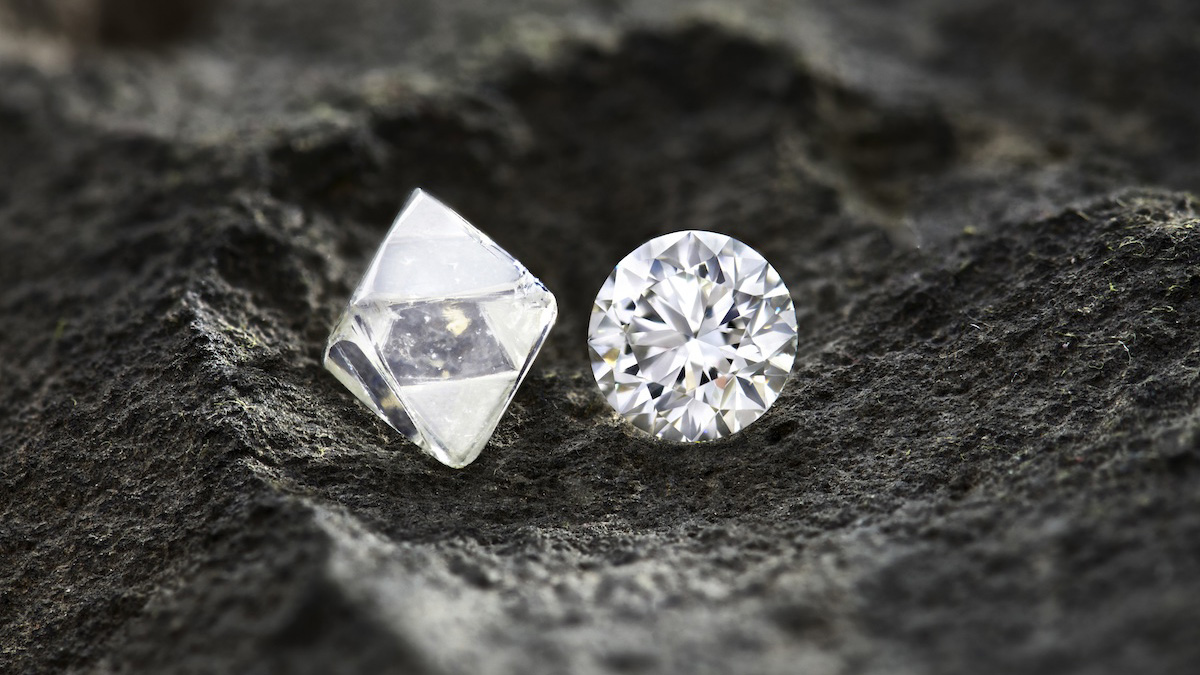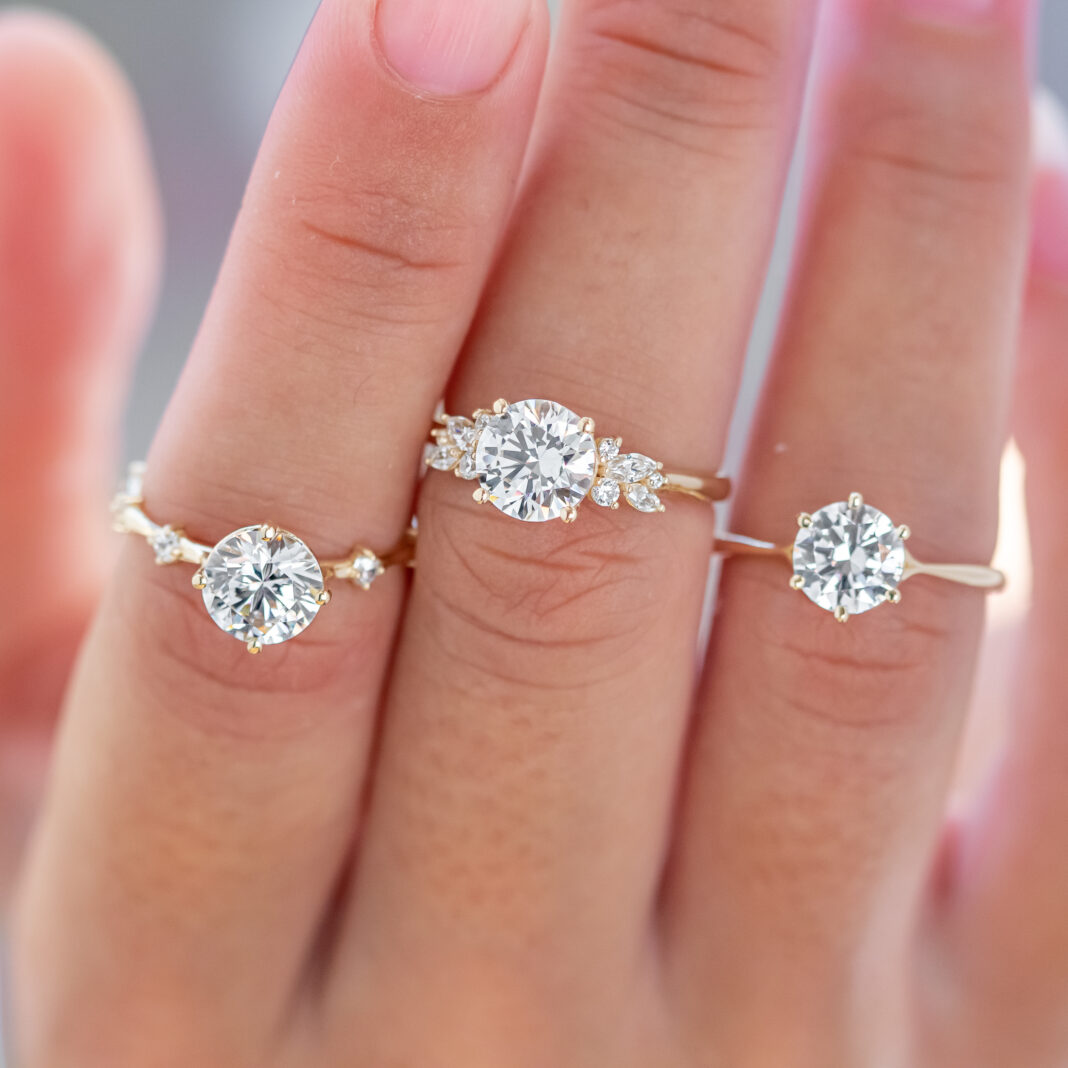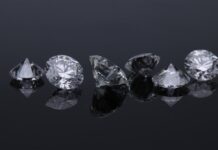In recent years, the debate surrounding lab-grown diamond engagement rings has grown ever more heated. With ethical considerations at the forefront of many individuals’ minds, it is becoming increasingly important to consider whether using these manmade diamonds for a special occasion such as an engagement or marriage is right or wrong.
On one hand, lab-created stones can offer significant cost savings and a wide range of colors and cuts not found in traditionally mined diamonds; on the other hand, they often lack the same characteristics that make natural diamonds so desirable.
In this article, we will explore both sides of this contentious issue to determine what is truly ethical when it comes to choosing which type of diamond ring you should purchase for your upcoming proposal.
The Environmental Impact of Lab-Grown Diamonds
Lab-grown diamonds are often hailed as the eco-friendly alternative to mined diamonds. Despite this, they still come with an environmental impact that must be carefully weighed when considering them for an engagement ring. The production of lab-grown diamonds requires a large amount of energy and resources, from the electricity required to power the growing process to the water used in cooling systems.
In addition, some labs use hazardous chemicals during diamond growth which can have a detrimental effect on local ecosystems if not properly managed and disposed of. The benefits of choosing a lab-grown diamond over a mined one are numerous; however, these should always be balanced against their potential environmental impact before making a decision.
As more research is conducted into efficient methods for producing lab grown diamonds and reducing their associated environmental costs, these considerations will become even more important when weighing up whether or not they are suitable for your engagement ring purchase.
Ethical Considerations for Consumers When Purchasing Lab-Grown Diamond Engagement Rings
:max_bytes(150000):strip_icc()/labgrownlede-2b7540f7f7404558a08f1a555862f3d3.jpg)
As consumers consider the ethical implications of purchasing a lab-grown diamond engagement ring, two key factors should be taken into account. Firstly, is it ethically acceptable to purchase diamonds created in a laboratory as opposed to those sourced from natural resources? Secondly, what are the social and environmental consequences associated with this type of jewelry acquisition?
Lab-grown diamonds offer several advantages over mined diamonds: they are often less expensive; production processes can be monitored for safety and quality standards; and the manufacturing process has minimal impact on the environment. However, some still feel that there is an ethical dilemma surrounding lab-grown diamonds due to their artificial origin.
When weighing up these considerations it’s important to consider both sides of the argument. On one hand, people may argue that opting for an artificially created alternative could help reduce conflict caused by illegal mining operations or unethical labor practices within the diamond industry – however, there is no guarantee that all conflict-free lab grown diamonds have been produced in factories where workers enjoy fair wages and safe working conditions.
Additionally, some believe that opting for a naturally occurring gemstone adds value because each individual stone carries its own unique story – something which cannot be replicated with manufactured alternatives.
Ultimately when making decisions about whether or not to buy a lab-created diamond engagement ring, individuals must make sure they take time to do research so they can make informed choices based on their personal ethics and beliefs.
Alternatives to Traditional Mining Practices and Their Impact on the Environment
The rise of lab grown diamonds has been an ethical and sustainable alternative to traditional mining practices, which can have a damaging impact on the environment. By sourcing carbon from other sources besides the earth, lab-created diamonds reduce air and water pollution, as well as harmful emissions that are caused by extracting diamonds from the ground.
Additionally, these man-made gems avoid unethical labor practices often associated with diamond mining operations in certain less-regulated countries. Lab-created diamond production eliminates any potential human rights issues during its manufacturing process due to its controlled laboratory setting.
In addition to the environmental and ethical benefits of using lab-grown stones compared to mined ones, many customers find that they get more value for their money since most synthetic diamonds cost 15-30% lower than mined stones of similar size or quality grade. Therefore, it is no wonder why so many people looking for lab diamond engagement rings are choosing this sustainable option over traditional methods when it comes to shopping for their perfect ring!
How to Ensure Quality and Confirm Origin of a Lab-Grown Diamond

When shopping for a lab-grown diamond engagement ring, ethical consumers should take steps to ensure that the diamonds they purchase are both of high quality and ethically produced. The source of a lab-grown diamond is important to consider when determining its ethical standing – as some manufacturers may use unethical labor practices or materials in their production process.
Quality also needs to be taken into consideration, as lower-quality diamonds can have imperfections that affect the overall beauty and value of the gemstone. The best way for an ethical consumer to confirm the origin and verify quality is by asking questions about where the diamond was grown, who grew it, if any external certifications have been awarded, what processes were used in its production, and so forth.
Additionally, reputable retailers will typically provide certification documents from independent gemological laboratories like GIA (Gemological Institute of America) or IGI (International Gemological Institute). These certificates usually contain information on carat weight, cut grade clarity grade, color grade measurements, and other details pertaining to the authenticity of a given stone.
Finally, before buying a lab-grown diamond engagement ring it’s important to look up customer reviews on various sites such as Yelp or Trustpilot; many customers cite both product quality and the customer experience in their reviews which can help inform potential buyers prior to making an investment in an ethically sourced jewelry item.


